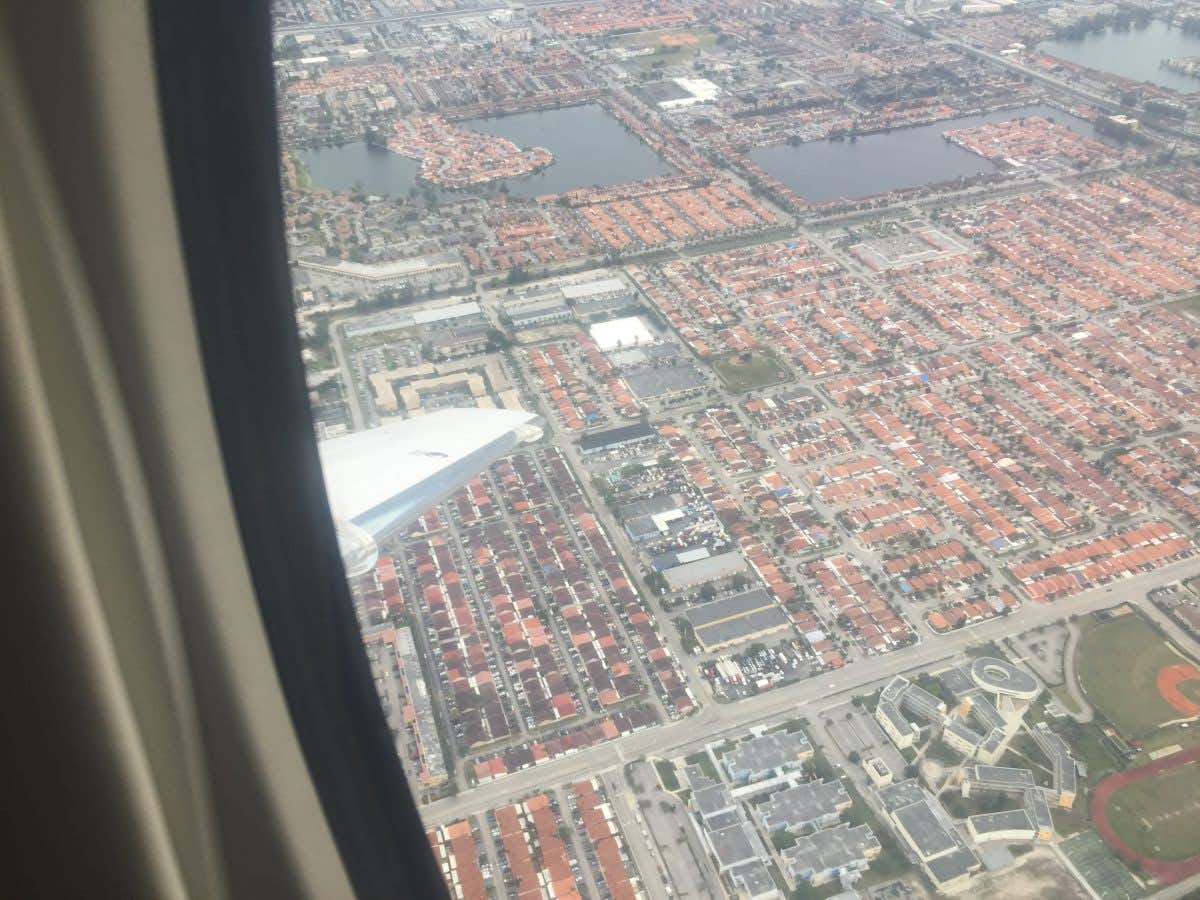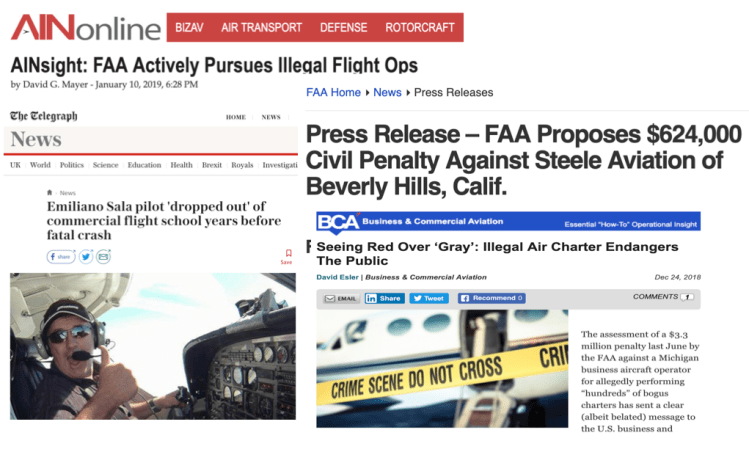
There’s the old adage, you get what you pay for, and in private aviation, it can often be true. The cost of the pilots, their training, private jet maintenance and everything it takes to dispatch your flight in a timely and safe manner, including some profit for the operator and broker, needs to be baked into what you are paying.
Of course, just because you pay a high price doesn’t necessarily mean you’re getting what you pay and while you may get good pricing and have an enjoyable flight, you may be getting less than you paid for as well.
The company that was operating your flight may not have been doing so legally. In other words, the operator and or aircraft may not have been certified under the Federal Aviation Administration’s Part 135 regulations that enable operators, be it direct owners or management companies, to sell whole aircraft charter.
Numerous executives I’ve spoken to say that illegal charter is on the rise. Generally, the illegal charters are by aircraft registered under Part 91, which to put it in simple form covers private jet ownership for personal or company usage.
Certainly, if you own a jet you can loan it to friends for a trip. You just can’t be compensated for it. There are some narrow jet-sharing arrangements, however, they would not apply to on-demand or charter through a jet card program.
Recently, we provided extensive reporting on Blackbird, which is a platform to mainly sell Part 91 dry leases, although it would be hard to know what you were buying unless you read over 10,000 words of agreements you auto sign when you click the buy button.
However, an illegal charter is even more difficult to detect, and it’s a problem for two reasons. While there are numerous Part 91 operators that run safe operations, the oversight requirements are lesser for both aircraft and pilots, including requirements limiting pilot duty hours.
Last December, the FAA proposed a $624,000 civil penalty against Steele Aviation of Beverly Hills, Calif., for allegedly conducting illegal passenger-carrying flights. The FAA believes that between October 2016 and February 2018, Steele conducted 16 for-hire flights when the company did not have the air carrier certificate required for these operations.
The flights involved transporting paying passenger between various points in Southern, Central and Northern California, and to Seattle, on a Cessna Citation CE-551 jet and a Hawker HS-125-800 jet. The FAA further alleged the pilots who conducted the majority of these flights did not meet applicable training requirements for that type of operation.
In June 2018, the FAA proposed a $3.3 million civil penalty against The Hinman Company for conducting hundreds what it said were hundreds of commercial aircraft operations in violation of its regulation, including failing to hold the required operator certificate for the flights being performed. The FAA alleged its subsidiary Hincojet LLC, operated a Beechcraft Beechjet 400A and a Hawker 900XP aircraft for the trips.
It said Hinman failed to meet the FAA’s Part 135 requirements for record keeping, including pilot records and load manifests, for each flight. The company also had no Part 135 training program in place, and the pilots operating the flights were not authorized to conduct the flights under Part 135.
The death of European football star Emiliano Sala earlier this year is believed to have taken place by way of an illegal charter, so while it’s possible to have safe operations, illegal charters also pose the ultimate risk for users.
Buying an illegal charter also undermines the investments required of legitimate Part 135 operators, the owners of those aircraft as well as pilots and those brokers and jet card providers who follow the rules, which are meant to provide the safest possible operations for consumers.
The National Business Aviation Associations adds “a noncommercial operator typically doesn’t carry the same type of insurance as a commercial operator. In the event of an accident or incident, it’s possible an insurance carrier would not cover a claim if the insurer believes the flight was actually for compensation or hire. If you own an aircraft that is used in illegal charter operations, whether you know about the illegal activity or not, an accident claim may be denied, and your coverage cancelled.”
You will also be liable for any unpaid Federal Excise Tax. Since FET is not paid for Part 91 flights, chances are even if you were invoiced for FET on your illegal flight, the money was never paid to the government since what you were being sold was illegal.
NBAA has several recommendations that will help you ensure you are not flying on an illegal charter.
– Ask your intended charter provider for a copy of its air carrier certificate, or at least its air carrier number. If the operator refuses to provide this information, illegal charter activity should be suspected.
– After a flight is conducted, you may see signs that indicate you flew on an illegal charter. Receiving multiple bills for a single flight can indicate illegal activity. For example, receiving one bill for use of the aircraft and another bill for pilot services.
– You should also review invoices for FET charges. An operator conducting an illegal charter will not typically charge FET.
– Exceptionally low prices or fees significantly out of line with other charter quotes should be questioned.
– If the pilot or someone associated with the company coaches passengers on what to say or do if an FAA inspector meets the aircraft at its destination, that’s another signal.
-When you get your tail number, check to make sure the operator has the authorization to conduct commercial flights by visiting the FAA’s website. and scroll down to Part 135 Aircraft Listing, or you can do a quick check from that list which I’ve integrated below:
The NBAA notes sometimes pilots don’t even know they are flying illegally. If you suspect you are being sold an illegal charter or flew on one, the Air Charter Safety Foundation (ACSF) manages an illegal charter hotline on behalf of the FAA. Those who want to report possible illegal charters in the U.S. should call 888-759-3581 or 888-SKY-FLT1.
